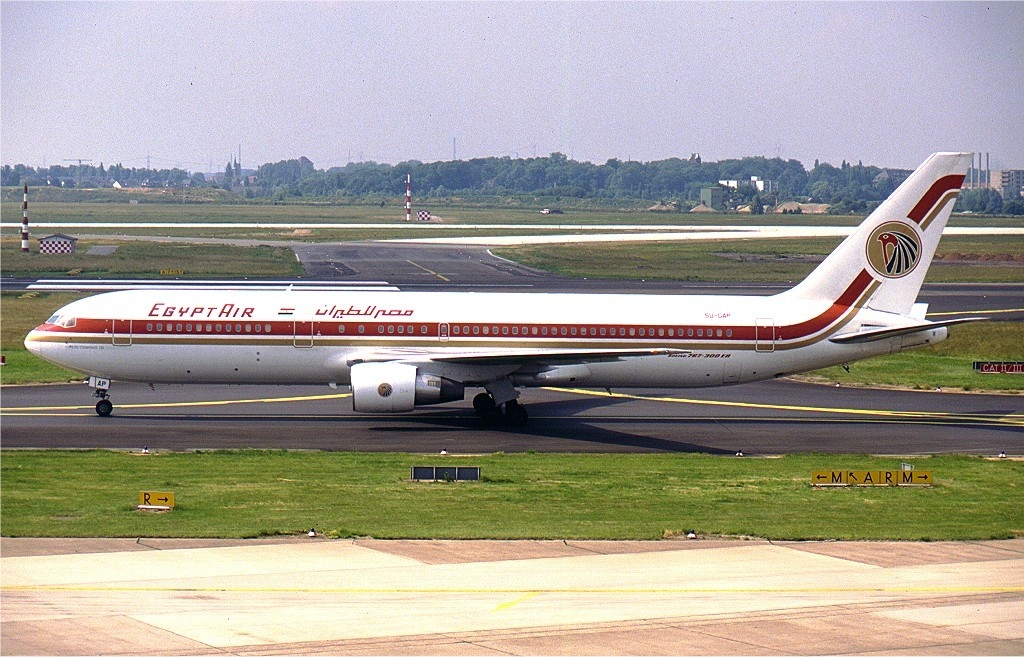
Oh EgyptAir…
EgyptAir’s Mysterious Plane Crashes
EgyptAir has historically had a not-amazing safety record, and perhaps most alarming has been that the cause of two crashes remains unknown. This is concerning because airlines can’t do anything to improve safety if they’re not able to (or are unwilling to) figure out or admit what happened.
The two crashes that stand out are the following:
- In 1999 EgyptAir 990 crashed enroute from New York to Cairo; most international investigators agree that the relief pilot intentionally crashed the plane, while Egyptian authorities strongly dispute that
- In 2016 EgyptAir 804 crashed enroute from Paris to Cairo; up until now the cause has been unknown, with Egyptian investigators insisting that a bomb detonated onboard, though international investigators have disputed that
It’s incredibly mysterious that the cause of a plane crash as recent as 2016 can’t be determined. Then again, a 777 disappeared into thin air just a few years prior to that, so I guess nothing is out of the realm of possibility.
Anyway, it looks like we now have a better sense of what caused the crash of EgyptAir 804.
EgyptAir 804 Basics & Theories
EgyptAir 804 was scheduled to fly from Paris to Cairo on May 19, 2016, and was operated by an A320. The plane crashed into the Mediterranean Sea, and killed all 66 people onboard.
Up until now Egyptian authorities have insisted that a bomb went off on the plane. They’ve based this on traces of TNT being found on the bodies of victims, though since bodies were in seawater for several weeks, other authorities said it was normal for traces of such explosives to be found. Furthermore, these were never found on the bodies of French victims that were returned to the country.
International investigators have disputed this theory all along. They say that a smoke detector in the forward lavatory went off, and that shortly before the crash passengers moved towards the back of the plane, suggesting there was a fire near the front of the plane.
Some Clues As To What Really Happened
The Wall Street Journal has revealed disturbing findings from an investigation into what happened to EgyptAir 804.
The issue seems to stem from the fact that Egyptian authorities were in charge of the investigation (since it was an EgyptAir plane), and they’ve withheld key information from other investigators.
They simply insisted that a bomb brought down the plane, but were unwilling to share a lot of their findings, citing the secrecy of their counterterrorism inquiry.
Now a French judicial probe has been completed (since French citizens died on the plane), which paints a very different picture of what happened. They have determined that maintenance and safety lapses left the plane unsafe to fly in the days before it crashed. Specifically, a leak of oxygen in the cockpit preceded a fire that likely disabled the plane.
According to this investigation, automated messages from the A320 involved in the crash reported serious mechanical errors on the final five flights, and those were largely ignored by the airline.
The pilots on these flights never mentioned the issues in post-flight reports, even though these issues should have set off alarms inside the plane. The EgyptAir ground technician also said that neither the airline nor the pilots informed him of these issues. On top of that, investigators are questioning if the EgyptAir technician in Paris who inspected the plane was qualified to service aircraft in Europe.
According to the documents from the investigation:
“The plane should have been checked during its four previous flights, and should not have left Cairo after the appearance of repeated faults that were not reported by successive teams.”
It’s clear that the Egyptian officials have been trying to block this investigation to such a great degree. In May 2018 the French and Egyptians met in Cairo, and French authorities were allowed to view aircraft debris, but not touch it. The French asked for a copy of the plane’s cockpit voice recorder, but Egyptian authorities refused, citing it as a secret criminal investigation.
But as it turns out, information was even being withheld between French investigators. France’s air crash investigation bureau held a backup copy of the data for quite a while, but refused to share it with the French judicial probe, arguing that they promised Egyptian authorities that they wouldn’t. So arguably that delayed the investigation by about 18 months.
Bottom Line
While I’ve enjoyed my flights on EgyptAir, it’s always disheartening and irresponsible for an airline (or perhaps country in this case, since EgyptAir is state owned) to be more focused on covering up problems and fault, than to focus on making the airline as safe as possible (in fairness, Boeing could be described in a similar way at the moment).
I’m happy to see that we’re getting closer to finding out what really happened to EgyptAir 804.
